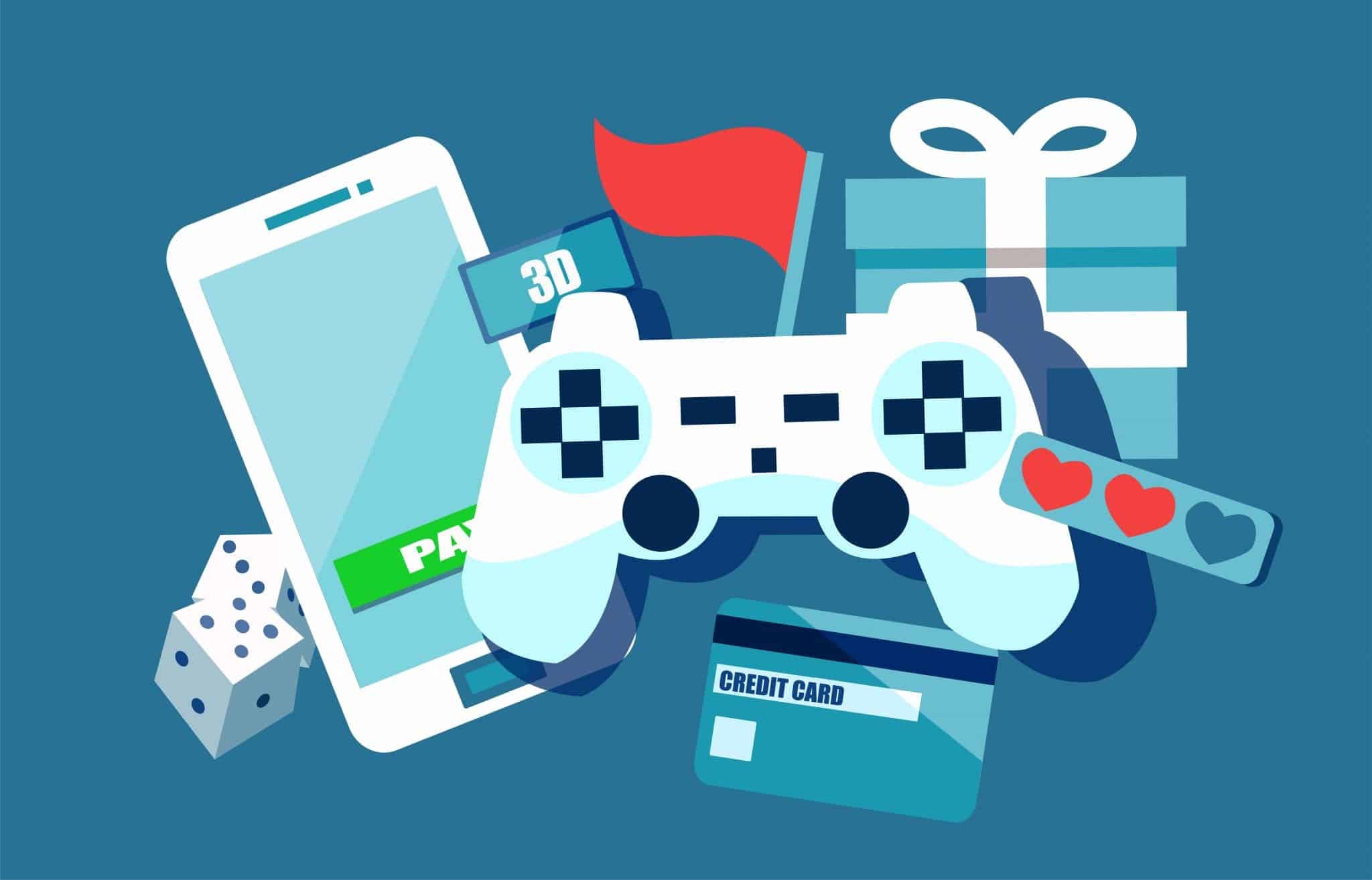
According to 2018 statistics, 72% of men ages 18-29 and 49% of women ages 18-29 are playing video games. Children younger than 18 are playing video games at an alarmingly high rate as well. Current generations of young people appear to be spending more time on video consoles that they are outside. While this may not be surprising, it is concerning that this form of entertainment seems like an addiction.
There are many different reasons that people find video game usage so appealing. Some might say it’s because they can go into an alternative universe and be someone else. Others find the graphics and special effects to be enjoyable. Many like the social connection that online gaming offers. All of these are valid reasons to play video games. However, many are also playing at such high rates because they have an addiction to the games.
One reason that many people could be becoming addicted to video games is as related to their usage of micro-transactions within the games.
If you are not familiar with micro-transactions, they are within game purchases that are made that frequently offer positive feedback. They are used often in free games for revenue sources. For example, if you play a game such as Candy Crush that allows you so many free moves per day, you can pay for additional moves if you have already exhausted your daily allotment. Many may think that this is a moneymaking pyramid scheme, but millions of dollars are spent on micro-transactions.
Micro-transactions have positive paybacks for the spender in the same way that taking a chemical substance feeds the addiction. Often they will spend money that gives them an advantage in whatever game they are playing. It may offer them a level up or additional time in a game that puts them ahead of their competitors. For someone who enjoys winning, which is honestly a lot of us, this could be a compelling reason to spend a few extra dollars. I mean, what’s a few extra dollars anyway, right?
Some examples of micro-transactions that have bothered people over the years are as follows:
- Scrabble on Facebook went from having no ads in the app to so many that people playing became angry. Users can pay for the adds to be removed, however they felt in negated the process of playing the game.
- NHL 12 and 13 had a bug where users could purchase packs to make their gaming more successful but many people purchased and never received the upgrade to their account
- NBA 2k14 did not allow gamers to trade players without purchasing in
- Angry Birds 2 had so many adds they became invasive to play, which prompted more people to purchase micro-transactions to get rid of the adds. This also caused uproar
- In May 2018, EA Games came under fire after their microstransactions policy seemed set up to cost gamers tons of real money in order to help players who paid, get ahead.
When those few dollars turn into hundreds of dollars per month, you could see how the gaming industry would be happy and how gamers may begin to have some difficulties and frustrations. Especially because so many free to play games are now building in adds just to prompt people to purchase packs to make them disappear. Some people are arguing that the micro-transactions are ruining the gaming industry. This is disappointing for gamers for many reasons. For people who do not have the financial access to purchase in-app opportunities, this puts them behind in achievement. For those who want a flawless gaming experience, they are likely unable to have it. For people who don’t want to spend money to be able to win, they have to. Parents are even finding that their children are spending their money or charging their cards for these micro-transactions without their consent.
What could be more disappointing to this is the effects that gaming and specifically micro-transactions in gaming have on humanity and our overall health and wellness.
There are theories that suggest that micro-transactions in the gaming industry look like and can lead to gambling or gambling addictions. This isn’t a silly thing that parents say to complain about their children’s usage. It really appears that people are becoming addicted to gaming and require clinical supports and interventions to be able to stop.
Video game addiction
Video gaming and gambling are similar in many ways. You might not think of pulling out your controller to play the latest Call of Duty as gambling in anyway, but let’s explore the way they mimic each other.
Both video games and gambling offer a schedule to reinforce purchases that offer you a reward and thus prolong your gaming experience. This is cyclical in nature in that if your experience is rewarded, you will prolong it, you will be rewarded again, purchase again to experience the reward, and then prolong the play. Both video games and slot machines use lights, sounds, and experiences that are positively stimulating.
They act like a movie or a story with you wondering what will come next and if the outcome will be joyful. When you experience the joyful outcome you want more and so you start over, regardless of how often you experience it because it’s just enough to make you think what you put in isn’t that big of a deal. That is true, in some ways, because $5 here and there won’t add up to much until it’s every day and even all-day usage.
Gambling, like addiction, has negative health impacts. And if video game usage mimics gambling, it isn’t too far off to suggest that video game usage could have similar effects. These negative mental health outcomes include anxiety, depression, and family difficulties. Gambling isn’t just hard on the individual, it is hard on the family unit because if a person runs out of money or loses their housing, they may rely on their family for financial support. This can be very straining for an individual and their family.
The relationship repair process does not occur overnight and often takes a lot of time with relationships never fully going back to the quality and trust that they were and had before.
There are many negative outcomes that come with spending so much time playing video games. This includes living a lifestyle that is so sedentary. It can lead to weight gain and poor nutrition as well as poor posture. Lack of social skills occur when someone spends so much time away from people and communities and isolated to games. People may find it difficult to concentrate and pay attention to other tasks such as work and school. They may avoid work they truly need to do. For example, forgetting to pay bills, do chores, or go to work.
And finally, repeated screen time, especially with loud noises and bright lights, can cause or exacerbate seizures. Some people even develop carpel tunnel and wrist and hand issues from gaming so often.
The professionals are still out on formal addictions where video games are concerned. The World Health Organization has added “gaming disorder” to their medical reference book, which is a step in the right direction. However, the Diagnostic and Statistical Manual 5 has not added this as a formal diagnosis. It still only lists gambling as an addiction. Nonetheless, it is likely coming with time and as more research is completed about video game addictions.
If you are worried about yourself or a loved one and are considering a possible addiction to gaming, you may be wary of the following signs and symptoms:
- Thinking about gaming most of the time
- Feeling bad when not playing games
- Not being able to stop playing games
- Not wanting to do other hobbies or activities you liked before gaming began
- Having difficulties functioning at work, school, or home because of gaming needs
- Continuing to play regardless of any negative outcomes related to gaming usage
- Lying to people about how much you play games
- Using gaming as an intervention to feel better when sad, upset, or angry
- Poor personal hygiene
- Lack of sleep

According to researchers, only a small percentage of young people are likely to have an “addiction” to video gaming. This is somewhere in the 1-9% of young people. In order to prevent gaming from getting out of control, the following strategies can be helpful:
- Limit your time or your child’s time spent gaming and stick to the limit
- Keep games out of bedrooms at night so you’re not tempted to play instead of sleep
- Build in time for other activities in the day such as going outside, working out, and reading. Maintain this schedule
- Regularly check in with yourself or your child about if there is too much gaming going on right now or if gaming is taking over life
Treatment for high video game usage
Because video game addiction is not formally diagnosed, it does not have as much research backing treatment the way other formal diagnoses have. However, many people have been and are being successfully treated for video game addictions. A variety of therapies are offered to individuals. These include behavior modifications, Cognitive Behavioral Therapy sessions, and 12 step recovery programs.
Cognitive Behavioral Therapy assumes that if you can change your thought you can subsequently change your behavior. Therefore much of the work in therapy is to notice thoughts about video gaming and transition to a healthier thought, such as knowing that video game usage isn’t healthy, which would then prevent the person from engaging in excessive video game playing. The person would set goals around what healthy playing looks like: this could be a reduction in playing or elimination of gaming altogether. They would work with their therapist to achieve such goals.
Another interesting form of treatment involves being in the wild for great periods of time. Wilderness therapy removes the person from their gaming behavior and believes that being in a natural environment, away from the gaming and everyday modern life, that they will become more comfortable with themselves and their life and no longer need to engage in gaming as a coping mechanism.
Inpatient treatment programs do exist for video game users. The person would leave their home altogether, much like with wilderness therapy, and reside in a residential treatment facility where they have access to individual and group therapies. The programs allow the person to identify their reasons for extensive use, develop coping mechanisms, heal, and provide better strategies for moving forward after discharge. The environments are notoriously game-free. Many people find inpatient therapy to provide them support far beyond what they originally admitted for.
Whatever support option you choose for yourself or for a loved one, know that an overall reduction in gaming can be helpful for them. Also, know that if you are able to manage your usage but you are noticing yourself spending more money in micro-transactions, this may put you at risk for developing an addiction to gaming. Whatever your situation, it is best to reflect with yourself about how often you’re gaming and why you are gaming. Remember that video games are just that: a game and not a lifestyle.
Worried that you or someone you love has developed an interest in gaming that leads to them spending too much money? Do you think your teen has an addiction to gambling or video games?




